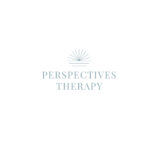
Many times, our anxieties, discomfort, and pain stem from within us. In our lives, we often face unique challenges and expectations from others that can amplify these feelings. Because, you see, we are often our harshest critics, engaging in negative self-talk and self-judgment.
We punish ourselves for how we feel, do, or look, using words to ourselves that we would never say to others. This only intensifies our feelings of deep-seated shame, worry, and insecurity.
Reflective self-compassion is essential to self-care and mental wellness. It offers a powerful way to heal, forgive ourselves, and find the strength to achieve our goals while boosting our happiness and life satisfaction.
What is Self-Compassion?
Self-compassion means showing yourself the same kindness, care, and understanding you’d offer a loved one. For us who may internalise societal judgments, this practice is about rejecting those harsh judgments and embracing yourself with love and patience instead.
The creator of the concept of “self-compassion,” Dr. Kristin Neff, emphasises that self-compassion strengthens our understanding of common humanity, helping us treat ourselves with more grace, let go of shame, increase our resilience, and develop more accurate self-concepts. Three key aspects of self-compassion are self-kindness vs. self-criticism, common humanity vs. isolation, and compassionate attention vs. over-identification.
- – Self-kindness is about shifting away from harsh self-criticism by becoming aware of negative self-talk and questioning its truth so that you can replace it with understanding and self-compassion.
- – Understanding common humanity reminds you that everyone makes mistakes. It helps us know that you are not isolated in your imperfections, allowing you to be more compassionate and self-forgiving.
- – Compassionate attention allows you to observe your emotions without judgment, accept your flaws, and become more resilient in life’s challenges.
The Best Friend Technique for Self-Compassion
If you wouldn’t say something hurtful to a loved one, don’t say it to yourself. The best-friend technique is a helpful practice when you’re being too hard on yourself. Instead of beating yourself up with harsh self-talk, you learn to speak to yourself with the same kindness and understanding you’d offer a close friend.
Use journaling to explore situations that trigger negative thoughts, noting what you’re telling yourself. Then, reflect on how you would comfort and support a friend in the same situation. Write down the encouraging words and advice you’d give them.
The Benefits of Self-Compassion
- – Self-compassion fosters happiness and optimism.
- – It reduces stress and anxiety caused by self-criticism.
- – It quiets the inner critic and prevents harmful, self-destructive thoughts.
- – Self-compassion helps you accept your mistakes and imperfections without judgment.
- – Practising self-kindness promotes personal growth and deeper self-awareness.
- – It strengthens the voice of your inner wisdom and authenticity.
- – It helps you understand and manage your emotions, providing a sense of control and balance in your life.
How to Cultivate Self-Compassion
Positive Affirmations
Affirmations are an act of self-love. These positive statements about yourself challenge negative thoughts and remind you of your worth. They can boost your resilience, lift your mood, and strengthen your relationships.
Daily practice of taking a step back from your thoughts
Take a moment regularly to ask yourself what you are reacting to whenever you notice uncomfortable, self-attacking thoughts. This practice can help you quiet your inner critic and replace it with self-acceptance. It’s a powerful way to calm your mind and foster self-kindness.
Journalling
Acknowledge your feelings of shame, guilt, or resentment without judgment. Journalling can be a helpful tool for recognising these thought patterns and gently redirecting yourself toward self-compassion.
Embracing Attentive Self-Compassion: A Path to Healing and Empowerment
Incorporating attentive self-compassion into your life is a powerful way to heal, build resilience, and foster self-empowerment. By embracing self-kindness, acknowledging common humanity, and practising compassionate attention, you can break free from self-criticism and cultivate a deeper sense of love and acceptance for yourself.
My culturally sensitive approach will help you feel heard, seen, and understood. Contact me to book a free 15-minute consultation to explore how we can work together.

Pingback: The Importance of a Vision for Your Life and 3 Tips to Help - Perspectives Therapy